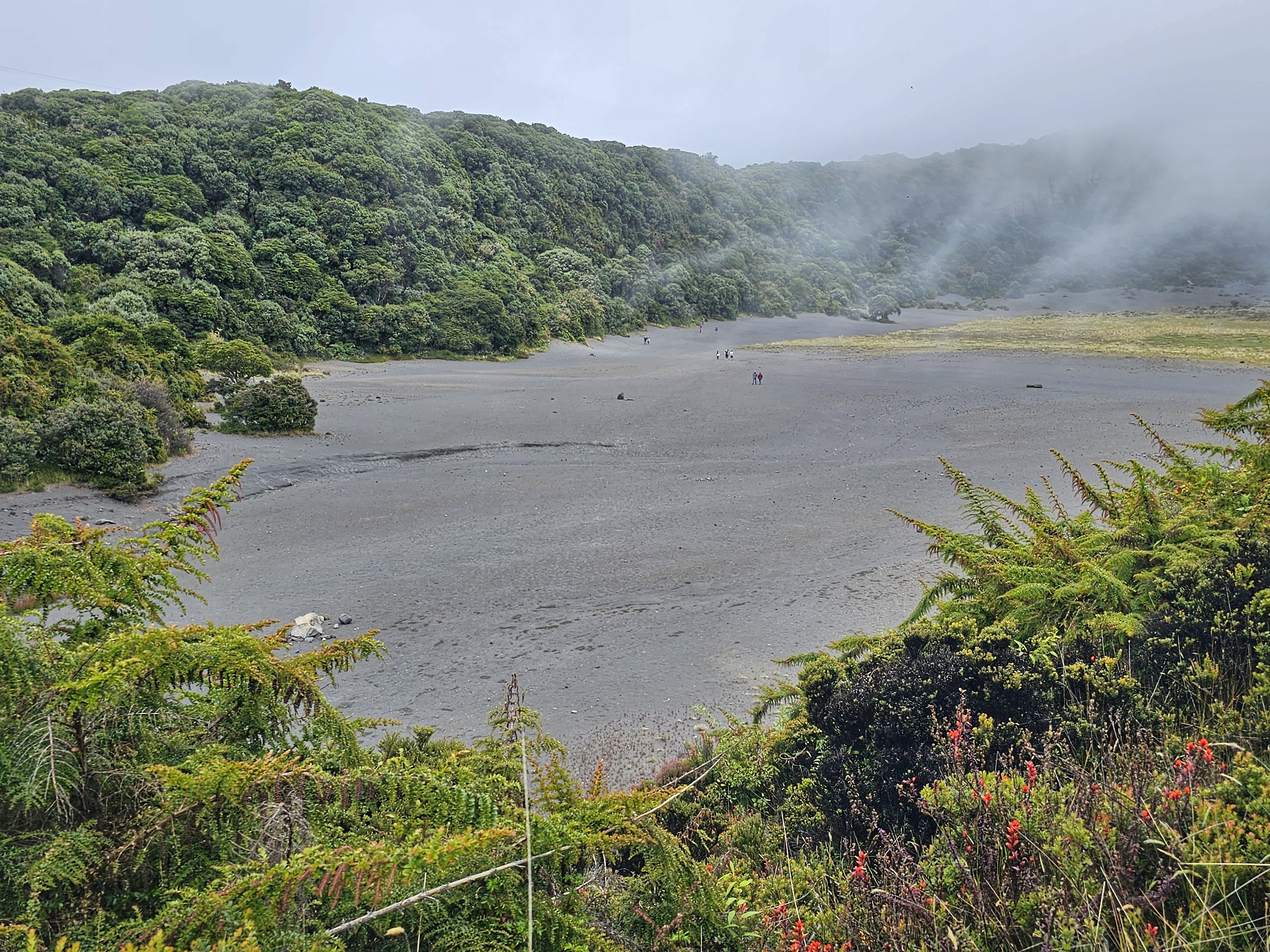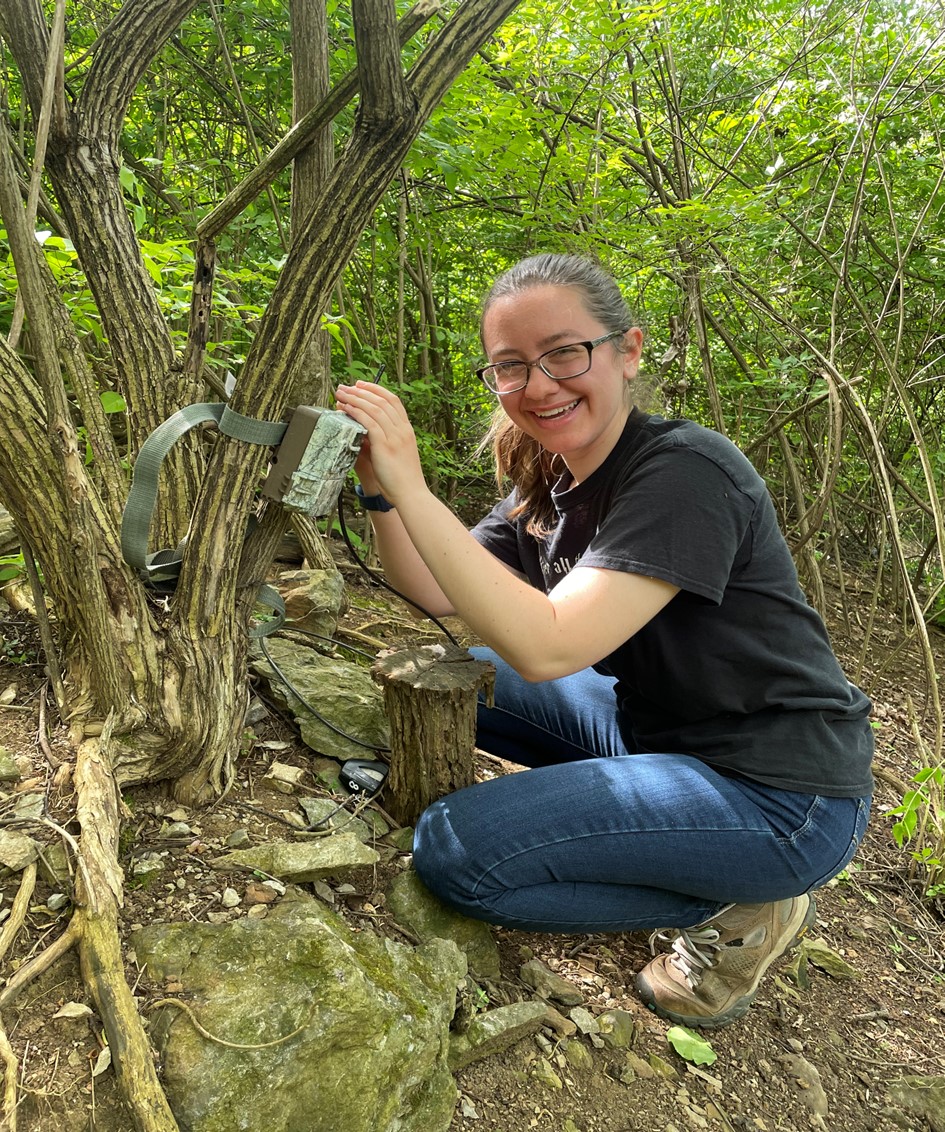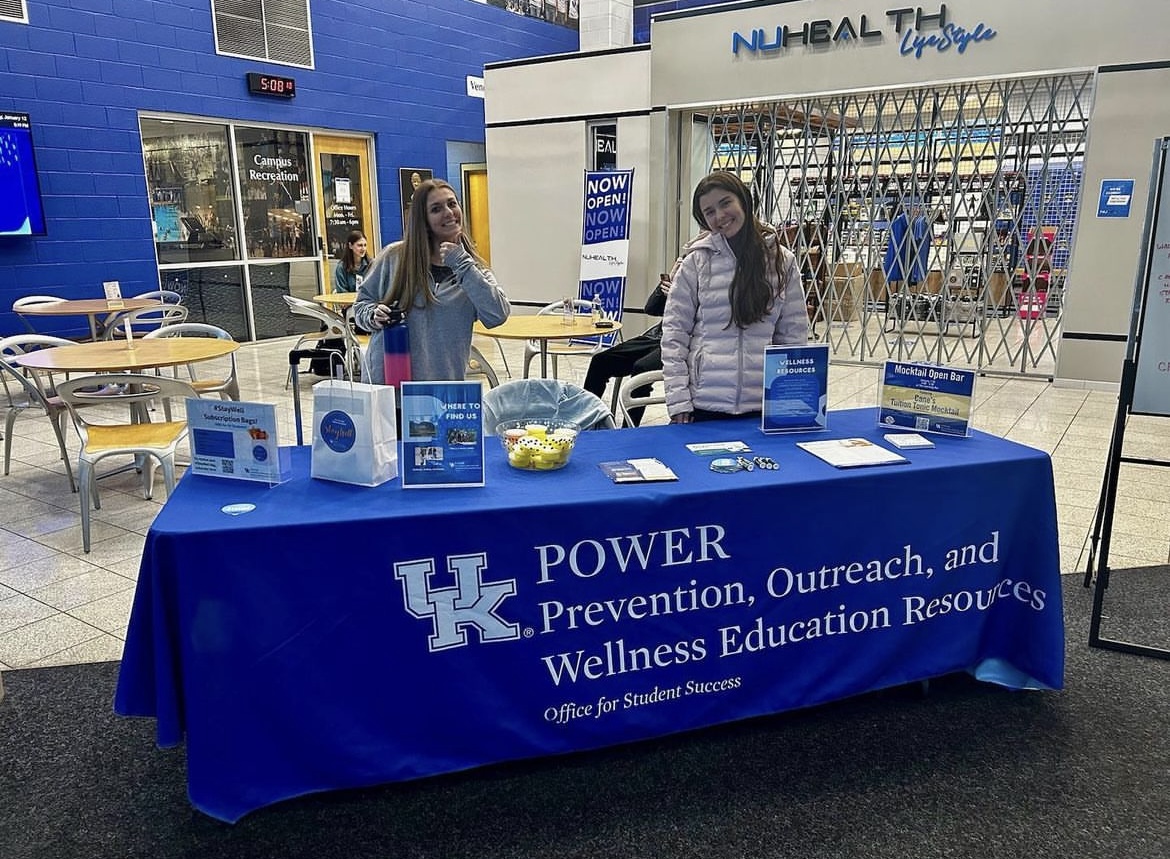Students
Natural Resources and Environmental Science
Students Choose Their Own Adventure!
Curriculum Overview
The NRES curriculum provides a broad education in the social and natural sciences that underpins natural resource conservation and environmental science work. The overall goal is for students to attain the skills necessary for entry-level positions in natural resource and environmental fields or graduate school. Students gain hands-on experiential learning through an internship and/or independent research project, as well as an extended field experience in the summer. See below for more details.
Students in this major literally choose their own adventure! They curate their own curriculum in both an Analytical Skill Development Area (ASDA or "skills") and an Environmental Systems Emphasis Area (ESEA or "systems"). These specialty areas allow students to develop skills and knowledge within their specific passion, building on the NRES core disciplines. Coupled with the opportunities described below, students emerge from the NRES program with the necessary knowledge, hands-on skills, and professional experience that together lay the groundwork for success in pursuing employment or graduate school.
Program Curriculum
For more information on specialty areas, click here to view the full program curriculum.
Program CurriculumSkills & Specialty Areas
As students make progress completing their UK core and major course requirements, they will start taking self-curated classes within two specialty areas typically around the end of their sophomore year or at the beginning of their junior year. Here is a complete overview of the requirement:
"Students must select one Analytical Skill Development Area (ASDA or “skills”) and one Environmental System Emphasis Area (ESEA or “systems”) and complete nine hours of course work in each area from the corresponding list of courses shown below following each area’s name and description. Students must select from the courses listed under their chosen ASDA and their chosen ESEA; however, they may request one (1) substitute course per ASDA or ESEA, subject to the approval by both their academic advisor and the DUS for NRES. From the total of 18 hours of ASDA and ESEA course work, all classes must be 200-level or above and at least twelve (12) credit hours must be in 300-level or above courses. Classes taken to complete the ASDA requirement may not count toward the ESEA requirement and vice versa. Research experiences, internships, or apprenticeships can NOT be used to satisfy the ASDA or ESEA requirements, including individualized options."
Experiential Learning
To give students exposure to real world natural resource work, NRES majors complete several experiential courses, including extended field experience in the summer (two options), as well as a pre-professional internship or undergraduate research project. See below for more details. Students work closely with their advisor and mentor in the program to identify potential opportunities that best align with their interest areas.
Summer Field Experience: Robinson Forest
Students in the NRES program are required to participate in a field course during the summer session (NRE 320: Extended Field Experience) at UK's Robinson Forest. Each year the course accommodates roughly 20 NRES students with at least sophomore standing. Students are immersed in field-based activities that allow them to build essential conservation field techniques and explore a variety of disciplines involved in natural resource management. For example, students practice basic methods of soil survey to infer ecological changes across the landscape and make land-use recommendations. Two days are dedicated to developing forest measurement and inventory skills and learning about the forest wood products industry, an important area of knowledge that is not necessarily required for this major. Other topics include dendrology, wildlife identification, forest ecology, benthic macroinvertebrate sampling, water quality monitoring, and surface mining and reclamation in the eastern coal field region. In each new setting, students consider both the natural and human induced factors that impact the system. Robinson Forest is an ideal location for students to learn how to read a natural landscape and draw conclusions about its management, while practicing the skills necessary for a rewarding career in natural resources and environmental science.
Summer Field Experience: Costa Rica
Students also have the option to forgo Robinson Forest and choose Costa Rica, a world leader in conservation, as their destination for NRE 320 Extended Field Experience. Dr. Sybil Gotsch, Associate Professor in the Department of Forestry and Natural Resources, leads the Costa Rica program each summer. The course introduces students to tropical ecology, making use of the tremendous ecosystem diversity that Costa Rica provides, while engaging in topics that range from herpetology to sustainable farming and ecotourism. Students also explore ecological and environmental concepts and issues in the humid tropics, including tropical ecology, biodiversity, and the natural history of important animals and plants. We use Costa Rica as a field laboratory to study a wide range of ecosystems such as very wet coastal areas, rare lowland primary rainforest, cool mountain cloud forests, and dry forests.


NRE 395 Research
Students arrange to work on a natural resource or environmental research project. Generally, students work with a UK faculty member within a department on campus (e.g., Department of Geography or Department of Forestry and Natural Resources). Students may also work with researchers in other settings (e.g., UK's Center for Applied Energy Research) or at other academic institutions inside or outside of the state. To register for NRE 395, students and their advisors develop a research contract. Research contracts explain the nature of the research, the work to be completed by the student, the outcomes expected (e.g., article, paper, poster), and the time period for completion of the work. Please contact your academic advisor for further guidance.
NRE 399 Internship
Students might choose to complete an internship instead of a research project. An internship is a pre-professional work experience that provides students with acquired skills, knowledge, and on-the-job training and mentorship. Students can identify internship opportunities by talking to NRES majors who have already completed internships, consulting with NRES staff and faculty members, and/or searching the internet for advertised job opportunities. Before registering for NRE 399, students must complete an internship contract that discusses the nature of the work. Please contact your academic advisor for further guidance.

